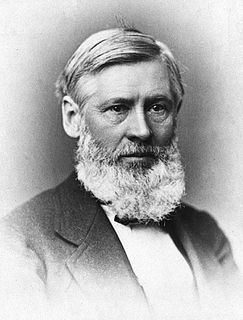A Quote by Charles Horton Cooley
So far as discipline is concerned, freedom means not its absence but the use of higher and more rational forms as contrasted with those that are lower or less rational.
Related Quotes
So far as discipline is concerned, freedom means not its absence but the use of higher and more rational forms as contrasted with those that are lower or less rational. A free discipline controls the individual by appealing to his reason and conscience, and therefore to his self-respect; while an unfree control works upon some lower phase of the mind, and so tends to degrade him. It is freedom to be disciplined in as rational a manner as you are fit for.
For in the absence of debate unrestricted utterance leads to the degradation of opinion. By a kind of Greshams law the more rational is overcome by the less rational, and the opinions that will prevail will be those which are held most ardently by those with the most passionate will. For that reason the freedom to speak can never be maintained merely by objecting to interference with the liberty of the press, of printing, of broadcasting, of the screen. It can be maintained only by promoting debate.
Raymond Aron ascribes to Weber the view that 'each man's conscience is irrefutable.' ... while [Weber] holds that an agent may be more or less rational in acting consistently with his values, the choice of any one particular evaluative stance or commitment can be no more rational than any other. All faiths and all evaluations are equally non-rational.
It's all emotion. But there's nothing wrong with emotion. When we are in love, we are not rational; we are emotional. When we are on vacation, we are not rational; we are emotional. When we are happy, we are not [rational]. In fact, in more cases than not, when we are rational, we're actually unhappy. Emotion is good; passion is good. Being into what we're into, provided that it's a healthy pursuit, it's a good thing.
The soul has two parts, one rational and the other irrational. Let us now similarly divide the rational part, and let it be assumed that there are two rational faculties, one whereby we contemplate those things whose first principles are invariable, and one whereby we contemplate those things which admit of variation.
The reason this system can’t be overthrown in this country,” Walter said, “is all about freedom. The reason the free market in Europe is tempered by socialism is that they’re not so hung up on personal liberties there. They also have lower population growth rates, despite comparable income levels. The Europans are all-around more rational, basically. And the conversation about rights in this country isn’t rational. It’s taking place on the level of emotion, and class resentments, which is why the right is so good at exploiting it.
I want to say, and this is very important: at the end we lucked out. It was luck that prevented nuclear war. We came that close to nuclear war at the end. Rational individuals: Kennedy was rational; Khrushchev was rational; Castro was rational. Rational individuals came that close to total destruction of their societies. And that danger exists today.
If I make a stupid decision but don't execute it because I'm, say, lazy, then I'm lucky, not rational. However, at other times a person acts for good reasons just as she does what she thinks she shouldn't do, not knowing that they are good reasons. Just like sometimes we are a lot less rational than we think we are, it is also true that sometimes we are a lot more rational than we think we are.
Only the heart knows the correct answer. Most people think the heart is mushy and sentimental. But it's not. The heart is intuitive; it's holistic, it's contextual, it's relational. It doesn't have a win-lose orientation. It taps into the cosmic computer - the field of pure potentiality, pure knowledge, and infinite organizing power - and takes everything into account. At times it may not even seem rational, but the heart has a computing ability that is far more accurate and far more precise than anything within the limits of rational thought.
If the Humanists wish to be champions of reason, they should consider the following: just as they would not admit mystics into their camp, since no rational discussion is possible with men who substitute supernatural revelations for rational evidence-so they cannot admit advocates of force into their camp, because no rational discussion or agreement is possible with men who substitute guns for rational persuasion.




































